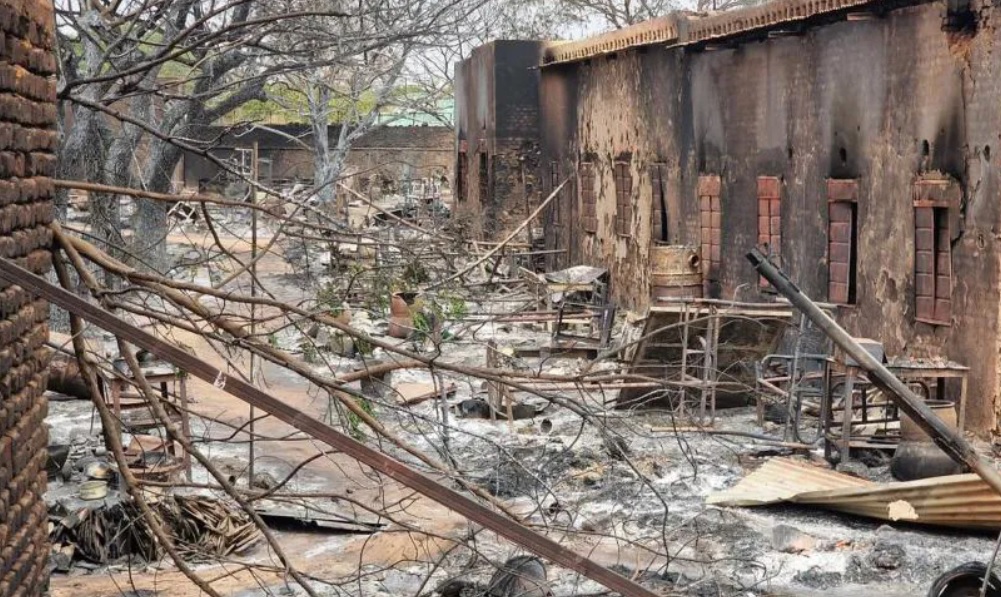
War and its Mayhem Lingers On!
Abdullah Rizk Abusimazah
Instead of the obvious question that arises six months after the start of the war, today, and in the absence of any signs of imminent peace, it might be possible to do the opposite by asking whether the war will continue for another six months, marking a full year. This could help, hypothetically, in examining and re-evaluating the factors likely to cause the war to continue and prolong over time, which can be summarized as follows:
The absence of a desire for peace among the warring parties, and the diminishing likelihood of a military resolution of the conflict by either side.
The failure of regional and international mediation efforts, so far, to design an acceptable project to stop the war and end hostilities.
The weakness of internal and external pressures, which has granted immunity to the warring parties against them, and created, conversely, a situation of coexistence with the war as a reality. With the decline of civil peace activism opposing the war, as fighting extended to all areas occupied by forces of the front against the war, including resistance committees and other democratic forces, the departure of the majority of political and civil leadership from the country and the relocation of the anti-war and anti-coup activities abroad has led to the likelihood of betting on external settlements and solutions.
The diminishing threat of the Sudanese situation to international peace and security, especially US national security, and the fading likelihood of it damaging the interests of regional countries. This has relegated it to the status of a forgotten war, similar to the low-intensity wars and conflicts in the Democratic Republic of the Congo, Central Africa, Somalia, and Yemen. On the other hand, the international community seemed less sensitive to the humanitarian tragedy left, and being created daily, by the war, while the Sudanese society seemed to be inclined towards coexistence and adaptation to the reality of war as a preordained fate.
In light of the cessation of negotiations between the warring parties in Jeddah, both directly and indirectly, since the end of last July, the war and its associated human suffering remain the imposed reality and the only truth in this context. This is not changed by the two most important events that occurred in the wars course last month:
The first is the exit of General Abdel Fattah Al-Burhan from the besieged leadership. While the event is important in itself, it did not seem to have any impact on the course and developments of the war, especially in terms of pushing towards ending the war. Al-Burhans exit, according to the African Union, was done with regional and international consensus for the same purpose.
The second is the imposition of US sanctions on the Secretary-General of the Islamic Movement (an entity other than the dissolved National Congress Party, as it is a super-organization that includes the leadership of Islamists, and although it is an illegal, unregistered organization under any of the laws regulating political and non-political affiliation, it still survives on state resources). Against two companies affiliated with the Rapid Support Forces that were subjected to sanctions, the US Treasury chose two figures from Al-Burhans camp as its targets, highlighting the role of the Islamic Movement in the countrys developments and its relationship with the military leadership, represented by General Al-Burhan.
However, there is a light at the end of the tunnel of the Sudanese crisis represented in the initiatives of civil society and local leadership in Al-Jeneina, Abus town, which have not ceased despite the violence of the fighting, its multiple rounds, and parties, and the resulting human losses and tragedies. Civil society in Al-Jeneina still provides a model of perseverance and relentless determination to overcome the war and its conditions and consequences, resolving conflicts and disengaging between the warring parties, ending hostilities, and establishing peace and coexistence among the components of Al-Jeneina and West Darfur State. This inspires civil forces in the rest of the countrys cities and states to regain the initiative to elevate the voice of peace and reject war.

